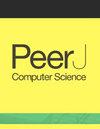Enhancing geotechnical damage detection with deep learning: a convolutional neural network approach
IF 3.5
4区 计算机科学
Q2 COMPUTER SCIENCE, ARTIFICIAL INTELLIGENCE
引用次数: 0
Abstract
Most natural disasters result from geodynamic events such as landslides and slope collapse. These failures cause catastrophes that directly impact the environment and cause financial and human losses. Visual inspection is the primary method for detecting failures in geotechnical structures, but on-site visits can be risky due to unstable soil. In addition, the body design and hostile and remote installation conditions make monitoring these structures inviable. When a fast and secure evaluation is required, analysis by computational methods becomes feasible. In this study, a convolutional neural network (CNN) approach to computer vision is applied to identify defects in the surface of geotechnical structures aided by unmanned aerial vehicle (UAV) and mobile devices, aiming to reduce the reliance on human-led on-site inspections. However, studies in computer vision algorithms still need to be explored in this field due to particularities of geotechnical engineering, such as limited public datasets and redundant images. Thus, this study obtained images of surface failure indicators from slopes near a Brazilian national road, assisted by UAV and mobile devices. We then proposed a custom CNN and low complexity model architecture to build a binary classifier image-aided to detect faults in geotechnical surfaces. The model achieved a satisfactory average accuracy rate of 94.26%. An AUC metric score of 0.99 from the receiver operator characteristic (ROC) curve and matrix confusion with a testing dataset show satisfactory results. The results suggest that the capability of the model to distinguish between the classes ‘damage’ and ‘intact’ is excellent. It enables the identification of failure indicators. Early failure indicator detection on the surface of slopes can facilitate proper maintenance and alarms and prevent disasters, as the integrity of the soil directly affects the structures built around and above it.利用深度学习加强岩土工程损害检测:卷积神经网络方法
大多数自然灾害都是由山体滑坡和斜坡崩塌等地球动力事件造成的。这些故障造成的灾难直接影响环境,并造成经济和人员损失。目测是检测岩土结构失效的主要方法,但由于土壤不稳定,现场考察可能存在风险。此外,由于主体设计以及恶劣和偏远的安装条件,对这些结构进行监测是不可行的。当需要进行快速、安全的评估时,采用计算方法进行分析就变得可行。在本研究中,计算机视觉的卷积神经网络(CNN)方法被用于在无人飞行器(UAV)和移动设备的辅助下识别岩土结构表面的缺陷,旨在减少对人工现场检测的依赖。然而,由于岩土工程的特殊性,如有限的公共数据集和冗余图像,计算机视觉算法研究在这一领域仍有待探索。因此,本研究在无人机和移动设备的协助下,获取了巴西国道附近斜坡的地表破坏指标图像。然后,我们提出了一个定制的 CNN 和低复杂度模型架构,以建立一个二元分类器图像辅助检测岩土表面的断层。该模型达到了令人满意的平均准确率 94.26%。接收器运算特性(ROC)曲线的 AUC 指标得分为 0.99,与测试数据集的矩阵混淆度也达到了令人满意的结果。结果表明,该模型区分 "损坏 "和 "完好 "类别的能力非常出色。它能够识别失效指标。由于土壤的完整性会直接影响其周围和上方的建筑结构,因此早期检测斜坡表面的破坏指标可以促进适当的维护和警报,并防止灾害的发生。
本文章由计算机程序翻译,如有差异,请以英文原文为准。
求助全文
约1分钟内获得全文
求助全文
来源期刊

PeerJ Computer Science
Computer Science-General Computer Science
CiteScore
6.10
自引率
5.30%
发文量
332
审稿时长
10 weeks
期刊介绍:
PeerJ Computer Science is the new open access journal covering all subject areas in computer science, with the backing of a prestigious advisory board and more than 300 academic editors.
 求助内容:
求助内容: 应助结果提醒方式:
应助结果提醒方式:


